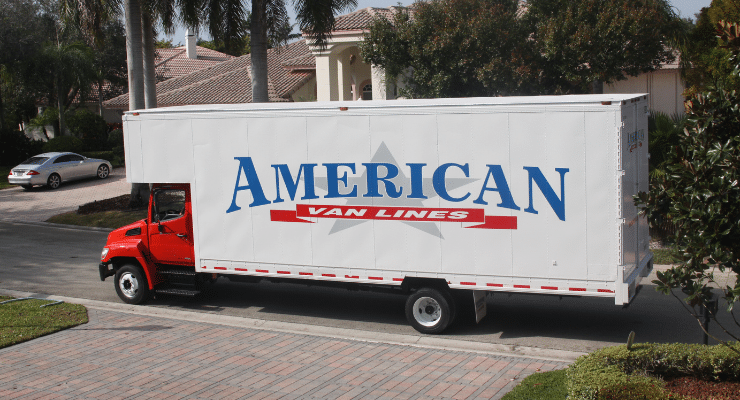The best way to find a reputable moving company is to compare them equally. Most respectable moving companies will provide you with a free estimate if you describe your list of items to be moved. Use the exact same list of items, as well as the services you’d like and the schedule you require, when you contact moving companies for their free quotes. As long as you’re comparing apples to apples, you should get a good picture of your price options.
Of course, price isn’t everything. That’s why it’s important to query your potential movers about the same services, delivered the same way. Be wary of companies that won’t conform their quotes to your specified needs. Your moving company should be ready to tailor your move to include the exact services you need. Request the same services, without any variations, when you make your inquiries for comparison. Later, when you call back, you can ask for service adjustments and consider their costs.
What are the different types of moving companies?
You have three options for accomplishing your move: Full service, self-service, and do-it-yourself. Full-service moving companies can handle everything, from packing and storage to pick up and delivery. It’s up to you to select your level of services from your full-service moves. Self-serve moves, where you pack a storage container for pick-up and delivery to your new place, are fairly new. They’re labor intensive but don’t entail the risk of renting a vehicle and making the drive yourself.
Do-it-yourself moves are the least expensive, but they carry the most risk of experiencing damages or delays. It’s difficult to move by yourself when you have to consider the safety of your family members. Choosing a full-service carrier allows you to concentrate on your people while the movers worry about your possessions. Your choices among full-service carriers are:
- Nationwide carriers – These companies perform your actual move. When you work with a national carrier, there are no middlemen to consider or compensate.
- Local movers – Allowed to do business only within the state in which they’re licensed, local movers pop up all the time. Find a local who does long-distance.
- Move managers – Also called corporate relocation specialists, these firms hire carriers to perform the household goods transportation part of a company move.
- Move brokers – These companies provide no valuable services other than connecting you with a carrier for a fee. They’re to be avoided if at all possible.
How do I know if my moving company is reputable?
Pick a moving company that explains your options clearly. Professional moving companies know the business, and they’re ready to explain your move clearly. Look for a moving company with easy-to-understand policies. Please read your contract before signing it. The majority of issues raised with legitimate moving companies come from a lack of understanding. If you have questions, ask. How they answer should tell you a lot.
Some moving companies try to confuse you. Does your moving company issue solid answers to the questions you ask? Compare the answers you get to the exact same questions. If there’s any concern with the way they choose to answer you, hang up and call someone else. Here are five questions to ask your moving companies:
- How do you calculate your prices? Long-distance prices are based on weight or volume and mileage. Local movers charge an hourly fee. Listen for deviations.
- Does your company perform all your moves, or do you hire surrogates? Brokers don’t move anyone. They’re usually paid by the firms they recommend.
- What’s the difference between binding and non-binding contracts? Binding contracts are for lists that won’t change. If your item list is in flux, go non-binding.
- How do your pick-up and delivery time windows work? Learn what a pick-up or delivery “window” is, then compare them between companies. It’s important.
- What is your cancellation policy? Understand the exact date on which your deposit comes into play. Make your final decision before you lose your deposit.
How do I evaluate moving companies?
Judge a moving company on whether it’s licensed, how much experience they have, whether you know someone who used them personally, and what the online reviews say. Long-distance movers are governed by rules enforced by the Federal Motor Carrier Safety Administration (FMCSA), as well as the rules of their home state. Local movers must adhere to the rules of the state in which they reside. If they aren’t licensed, they aren’t legitimate. You should evaluate moving companies on the basis of:
- Licenses – Ask for their Federal ID and their state license number. Google those, and if they aren’t available in official databases, direct your search elsewhere.
- Experience – Look for a company in business for more than five years. Rogue movers get caught quickly, but they often reappear under different names.
- References – One of the best ways to find a moving company is to ask someone who’s used them. Personal references are hard to find, but they’re the best.
- Reviews – Look for traits you admire in positive reviews. For a negative review, see how long it takes to respond to the complaint.
How do I make sure my moving company is legitimate?
Moving companies are required to send you a written estimate. You shouldn’t have to ask; they know the rules. If you don’t get your estimate in writing without asking, strike that company off your list. Check their licenses, visit their website, and scan their Google reviews. Moving companies can’t make Google drop a review; it can only be done by the reviewer. You won’t find a mover without negative reviews. It’s important to see if the complaint was handled or ignored.
Ask if you should expect your movers to appear in a company truck with the moving license number affixed and the crew attired in company gear. If the answer is some version of no, hang up. Most importantly, read the fine print of your contract. Highlight anything you don’t understand and ask about it. As we’ve discussed, it’s often the manner in which the company answers your question that tells you the most. Some rogue movers refuse to become flustered, though, so listen carefully to what they say. By comparing multiple responses, you should be able to determine who’s truthful.







